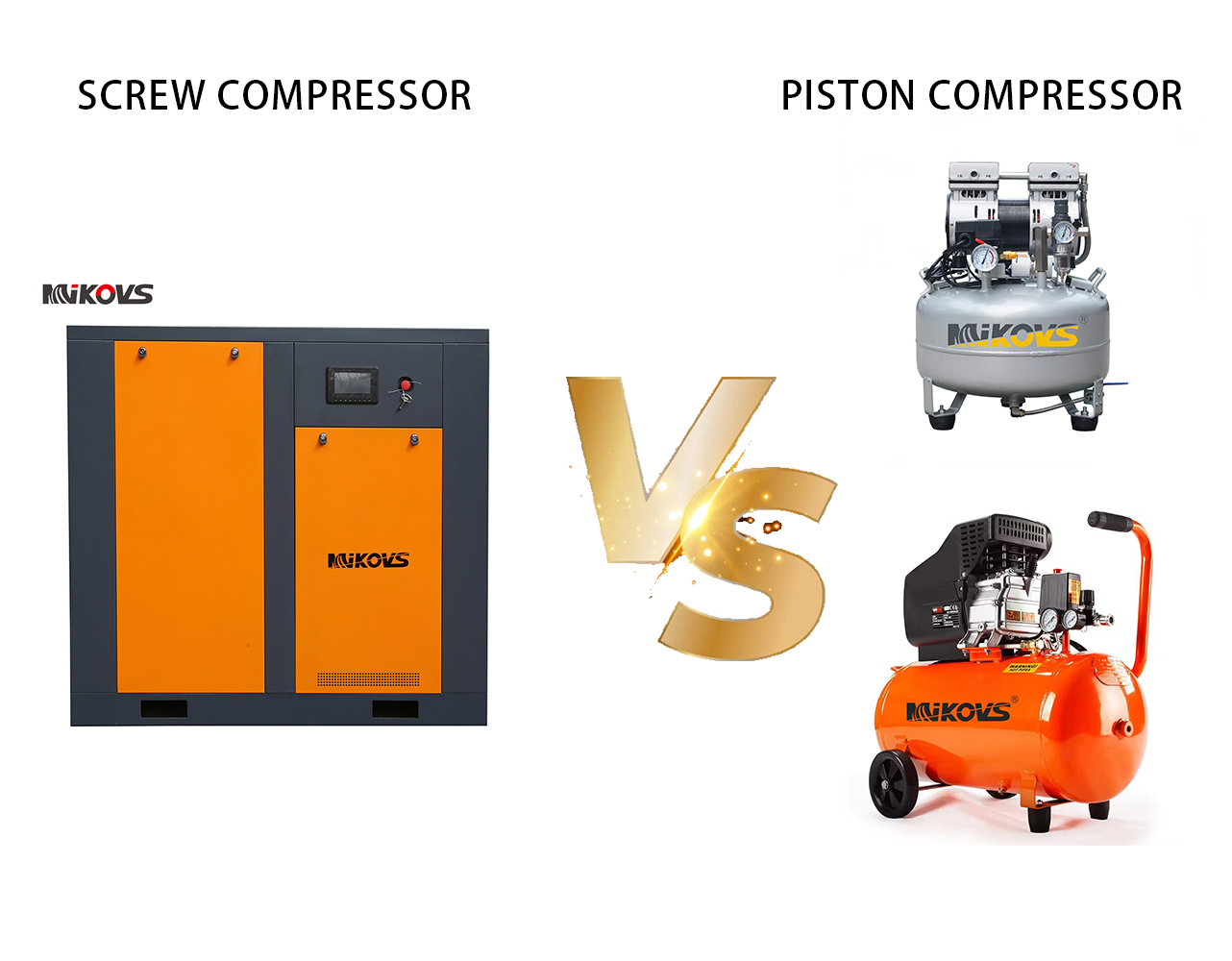The main difference between a screw and piston (reciprocating) compressor is the way they compress the air. Screw air compressors use two meshing helical screws, while piston air compressors use pistons driven by a crankshaft.
Screw compressors, also known as rotary screw compressors, are designed with two interlocking spiral rotors to compress air. These rotors spin in opposite directions, drawing in air and gradually reducing its volume as it passes through the compressor. On the other hand, piston compressors, also known as reciprocating compressors, use pistons to compress the air inside a cylinder. The piston moves up and down to create a vacuum, sucking in air and then compressing it to the desired pressure.
One of the main differences between screw and piston compressors is their efficiency and maintenance requirements. Screw compressors are known for their continuous operation and higher efficiency, making them suitable for applications that require a continuous supply of compressed air. They also have fewer moving parts, reducing maintenance requirements and extending service intervals. In contrast, piston compressors are better suited for intermittent use and may require more frequent maintenance due to wear and tear on piston and cylinder components.
Another important factor to consider is the size and capacity of the compressor. Screw compressors are typically larger and have higher capacities, making them ideal for heavy-duty industrial applications that require constant and high volumes of compressed air. Piston compressors, on the other hand, are available in a variety of sizes and are suitable for smaller operations or applications that do not require a continuous supply of compressed air.
In terms of initial cost, piston compressors are generally less expensive than screw compressors, making them a cost-effective option for small businesses or operators on a budget. However, when deciding between the two types of compressors, it’s important to consider long-term operating costs and efficiency.
In summary, the choice between screw and piston compressors depends on the specific requirements of the application, including air demand levels, operating efficiency, maintenance needs and budgetary considerations. Understanding the differences between these two types of compressors is crucial to choosing the most appropriate option for your compressed air needs.

